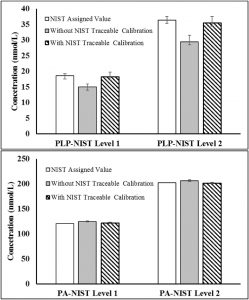Selected sufferers with advanced non-small cell lung cancer (NSCLC) profit from immunotherapy, particularly immune checkpoint inhibitors resembling PD-1 (programmed cell loss of life protein 1) inhibitor. Peripheral blood biomarkers can be most handy to foretell therapy outcome and immune-related adverse events (irAEs) in candidate sufferers.
This examine explored associations between inflammation-related peripheral blood markers and onset of irAEs and outcome in sufferers with advanced NSCLC receiving PD-1 inhibitors.A retrospective evaluation was carried out of 102 sufferers with advanced NSCLC receiving PD-1 inhibitors from January 2017 to May 2019.
Cox regression fashions had been employed to evaluate the prognostic impact of low/excessive neutrophil/lymphocyte ratio (NLR), lactate dehydrogenase (LDH), and prognostic vitamin index (PNI) on general survival (OS) and progression-free survival (PFS).
Logistic regression fashions had been used to research the correlation between peripheral blood markers and the onset of irAEs.NLR < 5, LDH < 240 U/L, or PNI ≥ 45 was favorably related with considerably higher outcomes in contrast with larger, larger, or decrease values, respectively.
The multivariate evaluation decided that these parameters had been independently related with each higher PFS (p = 0.049, 0.046, 0.014, respectively) and longer OS (p = 0.007, 0.031, < 0.001, respectively).
Patients with three favorable components amongst NLR, LDH, and PNI had higher PFS and OS than did these with two, one, or none. PNI and NLR had been related with the onset of irAEs.In sufferers with advanced NSCLC treated with PD-1 inhibitors, pretreatment NLR, LDH, and PNI could also be helpful predictive markers of medical outcome and irAEs.
Clinical nurses’ nasogastric feeding practices in adults: a multicenter cross-sectional survey in China

We aimed to research practices of nasogastric tube (NGT) intubation and feeding for adults by medical nurses in China.A self-designed and validated questionnaire comprising 30 questions was distributed to five60 medical nurses in three complete hospitals of Xiamen, China.
The questionnaire coated individuals’ demographic traits, NGT placement, administration of enteral vitamin (EN), and monitoring or administration of feeding intolerance.A complete 464 (82.9%) questionnaires had been accomplished; 36.2% of nurses used nose-ear-xiphoid and 79.5% forehead-xiphoid measurement to outline the interior size of the NGT.
Many individuals nonetheless used conventional strategies to substantiate NGT placement (auscultation of injected air 50.2%, bubble take a look at 34.7% and observing feeding tube aspirate 34.3%). Bolus feeding was essentially the most generally used method to manage EN.
A complete 97.0% of all nurses used syringes to measure gastric residual quantity (GRV), and 62.7% measured GRV each 4-Eight hours. The most incessantly used GRV threshold values had been 200 mL (44.6%) and 150 mL (25.2%).
Most nurses stopped feeding instantly when encountering excessive GRV (84.3%) or diarrhea (45.0%). The nasogastric feeding practices of many medical nurses weren’t constant with worldwide pointers.
Our examine can present an impetus for nursing directors to revise their nasogastric feeding procedures, to advertise compliance with evidence-based pointers.
A Survey of Eating Attitudes and Behaviors in Adolescents and Adults With Phenylalanine Hydroxylase Deficiency
Phenylalanine hydroxylase deficiency, generally referred to as phenylketonuria (PKU), is an inborn error of metabolism that manifests in extreme neurological harm when left untreated.
Routine new child screening has made early identification and therapy of affected people doable, altering the prognosis of PKU from devastating to wonderful.
The best therapy for PKU includes lifelong dietary restriction of protein, vitamin supplementation through medical meals, and frequent monitoring of amino acid ranges in the blood.
However, it has been noticed that imposing strict medical management over day by day dietary habits can result in damaging attitudes in the direction of consuming and physique picture. This examine investigated whether or not folks with PKU are at elevated danger of disordered consuming behaviors and attitudes.
Fifteen sufferers with PKU between the ages of 12 and 35 from the University of Wisconsin (UW) Biochemical Genetics Clinic had been surveyed about their metabolic administration and consuming attitudes and behaviors.
While this examine was too small to make conclusions of medical significance, our findings did counsel that sufferers with poor metabolic management exhibited signs of disordered consuming at a better frequency than these with good metabolic management.
There is at present no validated screening instrument to judge for disordered consuming behaviors in people with PKU, which makes figuring out and treating disordered consuming and associated situations troublesome.
The growth of this undertaking emphasised the significance of tailor-made screening and supplier consciousness for disordered consuming for populations with persistent diseases.

